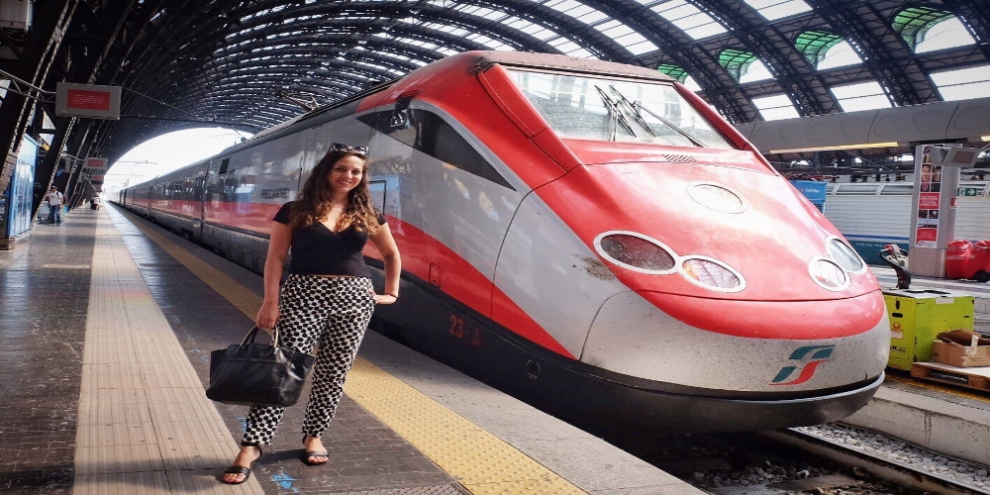Catching trains to get around Europe is straightforward, can be affordable, and provides ample scenery-watching opportunities, writes Tatyana Leonov
I’m not great with early starts, but to make the most of five days in the Netherlands we catch the first Eurostar train from London to Amsterdam. Although my husband and I have two young children, we sometimes forget that travel takes twice as long with our little people in tow.
That’s why we’re catching trains more often as we explore Europe. Trains are roomy and we can stretch out. Total travel times are often comparable to flying. And trains are much greener than planes. According to Eurostar, a customer’s carbon footprint from one plane journey is the same as taking 13 Eurostar journeys.
That said, train fares can be more expensive than low-cost flights, and you should plan your fast-train and sleeper journeys in advance to take advantage of any available cheaper fares.
Booking Single Tickets
For single journeys, there are a number of ways to purchase a ticket. If buying in advance, it can be done online using the country’s National Rail Service (although website useability can vary from one country to another), or via a booking search engine. Or, if you are already in the country and are intending to travel on a local or regional train, you can simply turn up at the train station and purchase your ticket there – either from a machine or at the ticket office – and hop on board the next train.
If you intend to book a high-speed train or a sleeper train, securing your ticket in advance is highly recommended. These trains work on reservations, and seats can sell out on popular routes and in peak seasons.
Most train operators have multi-language websites, and booking ahead and directly will usually provide you with the best price. Better-known booking search engines, like Rail Europe and Trainline, will typically price tickets higher, but their websites are often more user-friendly, especially when it comes to complex train routes that span numerous countries.
/cloudfront-ap-southeast-2.images.arcpublishing.com/nzme/CNZQYGU7ITWVNGKKV23BUP7K3I.jpg)
Rail Passes
If your trip involves a number of routes and/or regions, it’s worth considering a rail pass which covers train travel for a set number of days in one or more countries – either for a continuous journey or spread out over a designated time frame. Whether or not you would benefit from a pass depends on how often and how far you are travelling.
To ensure you are getting the best value, compare the prices of individual tickets in the country or countries you are travelling in with that of a rail pass. Generally, train tickets are cheaper in Eastern Europe, so if you’re spending most of your time in countries like Poland, Hungary or Romania, a pass is less likely to save you money.
A Eurail pass can be a great option for those with travel plans that span multiple countries across Europe. It works in 33 countries and you can travel as often as you like within a set number of days, with additional payments and bookings required for most high-speed and sleeper trains.
/cloudfront-ap-southeast-2.images.arcpublishing.com/nzme/HGGTF657G5BYHHOMVDBLJPQFOU.jpg)
If you’re travelling around only one country, Eurail also offers a one-country pass that can be a good option. A number of European countries also offer their own national rail pass, so it’s worth comparing the two options. Germany, Switzerland and Italy, for example, all offer residents from other countries the option to buy passes valid for certain time periods and with various conditions attached to them.
Source : NZ Herald















